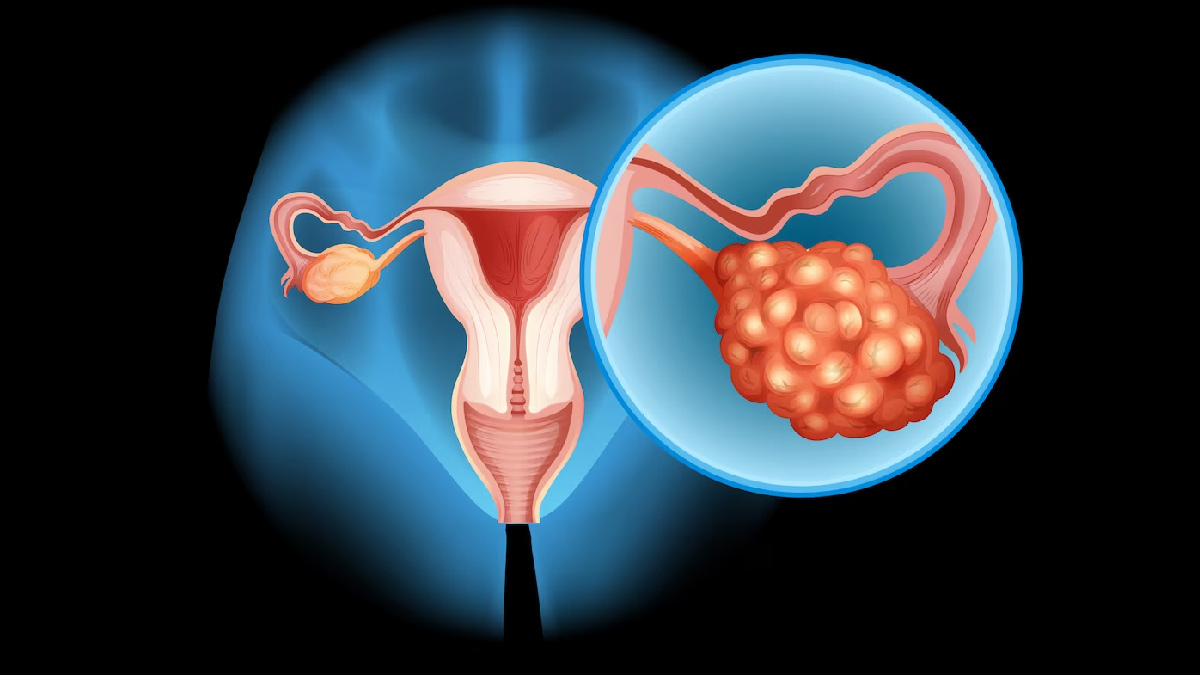
Polycystic Ovary Syndrome is a common hormonal disorder affecting females, often leading to various health challenges. It usually affects females of reproductive age and is characterised by irregular menstrual cycles, elevated levels of male hormones leading to symptoms like acne and excess hair growth, and the presence of small cysts on the ovaries, according to the World Health Organisation (WHO).
Table of Content:-
One aspect that many may not be aware of is the impact PCOS can have on sleep. According to a study led by researchers from the University of Adelaide, ‘sleep disturbances and disorders including obstructive sleep apnea and excessive daytime sleepiness occur more frequently among women with PCOS.’

PCOS And Sleep Issues
WHO shared that PCOS causes hormonal imbalances, insulin resistance, and inflammation, all of which can contribute to disrupted sleep patterns. The interplay of these factors can lead to conditions like sleep apnea, insomnia, and restless leg syndrome, making it challenging for individuals with PCOS to achieve restful sleep.
Common Sleep Issues with PCOS are:
- Insomnia: Hormonal fluctuations can disrupt the natural sleep-wake cycle, causing difficulty falling or staying asleep.
- Sleep Apnea: PCOS is associated with an increased risk of sleep apnea, a condition where breathing temporarily stops during sleep.
- Restless Leg Syndrome (RLS): Those who have PCOS may experience uncomfortable sensations in their legs, leading to an irresistible urge to move them, impacting sleep quality.
Also Read: Suffering From PCOS? Follow These Diet Tips To Prevent Your Risk Of Getting Diabetes

Managing PCOS-Related Sleep Issues
If you have PCOS, that does not mean you can not achieve quality sleep. Here are some effective strategies that can help you manage sleep problems due to PCOS:
- Maintain a Consistent Sleep Schedule: Establishing a regular sleep routine helps regulate the body's internal clock, improving overall sleep quality.
- Create a Relaxing Bedtime Routine: Practice calming activities before bedtime, such as reading, gentle stretching, or meditation, to signal to your body that it's time to wind down.
- Regular Exercise: Engaging in regular physical activity can help regulate hormones, improve insulin sensitivity, and contribute to better sleep. Aim for at least 30 minutes of moderate exercise most days of the week.
- Balanced Diet: Opt for a balanced diet rich in whole foods and low in refined sugars. Managing insulin levels through diet can positively impact sleep.
- Mindful Stress Management: Practice stress-reducing techniques such as deep breathing, mindfulness, or yoga to alleviate the emotional and physical stress associated with PCOS.
Also Read: Benefits of The Mediterranean Diet, Your Best Ally Against PCOS
Recognising the connection between PCOS and sleep disturbances is crucial for those navigating this hormonal disorder. Implementing lifestyle changes, maintaining a consistent sleep routine, and addressing stress can significantly improve sleep quality for individuals with PCOS. If sleep issues persist, it's essential to consult with healthcare professionals who can provide personalised advice and support. By prioritising sleep hygiene and adopting a holistic approach to wellness, people dealing with PCOS can take significant steps toward better sleep and overall health.
Also watch this video
Read Next
Nirmala Sitharaman Focuses On HPV In Union Budget 2024, Diet Tips To Follow After HPV Diagnosis
How we keep this article up to date:
We work with experts and keep a close eye on the latest in health and wellness. Whenever there is a new research or helpful information, we update our articles with accurate and useful advice.
Current Version
